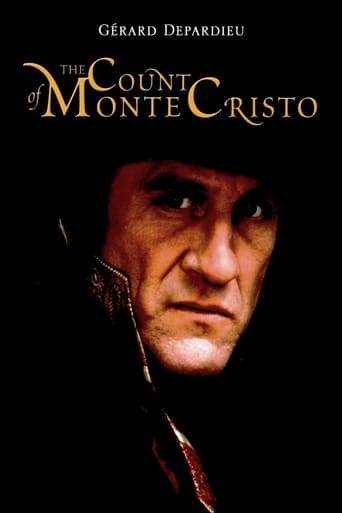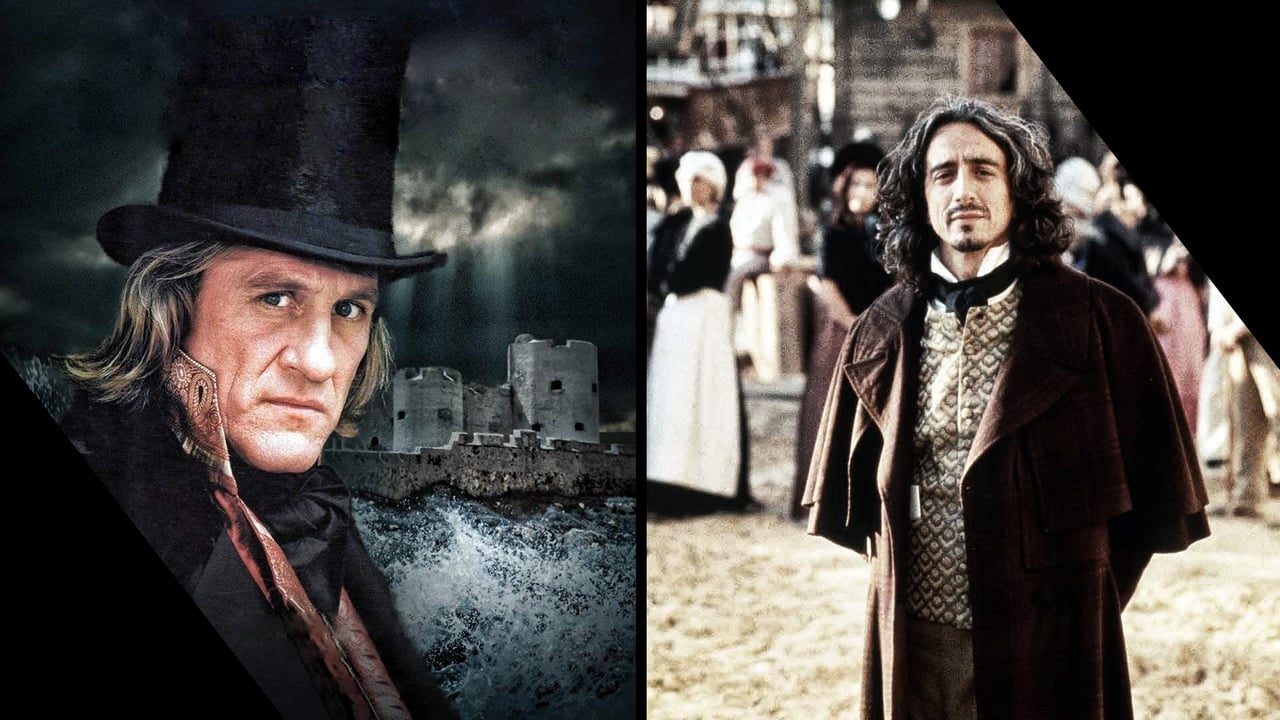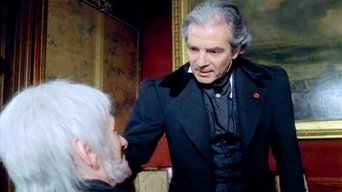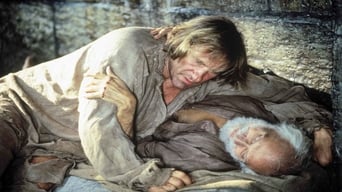Irtisen
I won't discuss the faithfulness to the book at first. To me a matter of era.(Honest warning: this section is seemingly off the point. Read or pass on it: what follows is a point of view, subject to much contradiction.According to me, A. Dumas had genius for drama (fate, revenge, strong characters, breathtaking plots), but not as much for literature, writing. Exactly as V. Hugo. To me, the real genius was G. Flaubert. But his literature was not "romantic" at all. (Or read 'Sentimental Education', and you'll fully understand that he was a disappointed Romantic.) Thus, when you ask the French who is or was the best French-speaking writer of all times (they have read none in fact), they always choose Hugo, then Dumas or another, Verne, Chataubriand, Zola, Balzac... They always forget Flaubert, Maupassant, Stendhal, Proust, etc. A matter of opinion, you could say. Maybe a question of fame, too. More (and less
): as J.M.G. Le Clézio perfectly expresses (this is my translation, not his words), "Polls are so unfair. And to take first or last place in a poll is not what is important... What is serious is to be forgotten." (Sorry, IMDb does not accept (the original) French words, and I must delete...)... Who really read Dumas's novel(s)? - You watch a movie, and say: Dumas (whoever as a matter of fact) is a great writer. – I like Dumas indeed, but such ironic (and sad) limbo
)Well, as to betrayal to novels, do you think "The Quiet American" (1958), which is a great Mankiewicz's movie, was faithful to the book? The thesis of G. Greene (I am very fond of his ambiguous books) is the absolute contrary to the thesis of the shameful script. Mankiewicz's film should have been called "The absolute betrayal of G. Greene's Quiet American". - I know the political background of 1958 could not permit any director to be faithful to Greene. The 'betrayal' of Josée Dayan is nothing compared to that. The problem is, in my mind, that the 'adaptation' is due to commercial reasons: the series were shot to be sold to foreign countries, to be financially viable, and profitable. Era of the market. And of lovable heroes. Producers cannot put up the money for an expected international success starring a character (Dantes) who would be too ambiguous. Political correctness. Sad time of money and "good against evil"... (Where is Welles, and the early Polanski, etc.?)If I should vote for Depardieu's performance (you know he can be perfect, and sometimes appear in minor movies - nevertheless his huge talent cannot fade from those), I would vote 10, though he is not Dumas's Dantes - but he is not responsible for that, if you agree with my point of view. Another sad limbo for Dumas. His acting is so intense that he sucks the lifeblood out of the cast, which is very good. Thus, due to the 'adaptation', in spite of Dayan's great gifts for filming (plus she herself is quite a Dumas's heroine), my vote is 8. Polls are unfair. The result (the 'film') is more than worth seeing. Thanks. Debate: still open.
Rascar-Capac
There have been numerous attempts to bring Dumas classic novel of romance, betrayal and revenge to the screen. This big budgeted french TV Mini Series rises high hopes but fails miserably. The producers relied heavily on the stardom of their principal actor Gerard Depardieu (1900, Greencard) and on what they thought was a script, true to the book (that is to the second half of the novel only). Sadly, neither the casting nor the script works for the film. At first, Depardieu, who was a perfect choice for the highly entertaining "Cyrano de Bergerac" years before, is a complete miscast here. His impersonation of Edmond Dantes never comes to life, his overweight is showing to bad effect, especially in the brief Château d'If scenes and whenever Dantes/Depardieu, in the wake of his revenge plan, tries to slip into the role of a priest or an English Lord, the result is ridiculous. Even worse, instead of creating an adequate film adaption of Dumas novel, the scriptwriters either omitted the best parts of the book or they followed the weaker chapters of the tale too closely, simply transferring it's sometimes overhanging twists and plots to the screen. Within six and a half hours of film, there is no introduction to the fate of Edmond Dantes, we never see his enemies build up the conspiracy against him, nor do we get more than a glimpse of his suffering in Château d'If and of his ever growing hatred. It is all left to a few laughable short flashbacks and memorizing dialog! As a result there is no real character build-up and no such thing as drama and suspense to unfold. Besides all, the filmmakers clumsy attempts of staying close to Dumas are finally put to shambles, since they opted for a completely different ending. To be fair, there are some visual delights: the period costumes look beautiful (so does Ornella Muti as Mercedes), several locations and sets, like those depicting the quays of Marseille or the narrow alleys of Rome, are exquisite – as if a painting of Delacroix had come to life. But those moments don't compensate for an otherwise boring and dull movie. Hollywoods 1934 version, featuring Robert Donat or the 2002 version with James Claviezel went for a much looser adaption of Dumas but nonetheless they gave the audience all that is missing here: emotions, drama, action and a hero, we are worried about.
Lars-Toralf Storstrand
Maybe you have read the book? Maybe you have seen the dramatization with Richard Chamberlain in the role of Edmond Dantes? Or maybe even you have seen the poor excuse of a movie with the same title made just a few years ago (after this mini-).This French series is by far the best dramatization ever made of the Dumas' classic about the young sailor tossed into prison, only to come back to wreak vengeance on his former friends (with friends like these, who needs enemies?).The portraying of Edmond Dantes posing as a banker, a gazillionaire, a jesuit priest and other characters vital to the story is very good - only I must confess that I would rather picture a different actor in the role as Dantes.Gerard Depardieu is an actor like the potato, usable for quite a lot of things, but his countenance and body, in my view, doesn't fit the description of Edmond Dantes... so a 10 becomes a 9.
dj_bassett
Eight hours allows for a greater presentation of the many subplots and complexities of the storyline. Depardieu (once you get past his size) is excellent as the Count, a man who, as the reviewer from Amazon says, exchanges one prison for another, a prison of his own hatred. The cast is general is very good and convincing, with Ornella Muti certainly the definitive Mercedes. Set design and production values are excellent.
I have only two criticisms. The first and more minor one is that even this long adaptation doesn't have everything. They couldn't, of course, portray everything -- the book itself is well over 1,000 pages and in truth has padded sections -- but some worthwhile aspects of the story were cut, most notably early sequences with the Abbe Faria (who teaches Dante how to read and write) a very famous part that's usually included in dramatizations of the story. The ending, too, is happier than Dumas's. (I should add that some sequences were very sensibly cut).A more serious criticism is that Dantes's character is too soft. Depardieu is a fine actor but his portrayal allows Dantes to come off far more sympathetic than I think Dumas intended. The coldness and bloodthirstiness of the Count is not emphasized as much as it might (one sequence at an execution has a very different spin from the way it's presented in the book, for example), nor is the extent of his hatred. This is a real flaw, partly because it makes light of the theme of the story, the effect of revenge on the revenger, and partly because the climax is not as effective if we're already on Dantes side. The flaw here is not with Depardieu, who does his job admirably, but rather with the screenwriter and director.
As such, I can't call this the definitive version -- a little more courage on the screenwriter and director's part would've done wonders. Still, it's probably the best we're going to get. It's hard to imagine anybody else lavishing this kind of care and attention on the story.


 AD
AD






